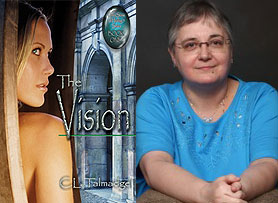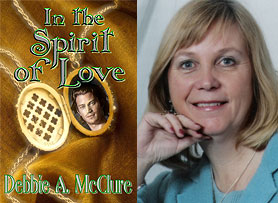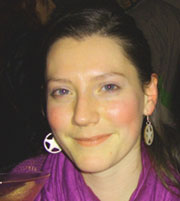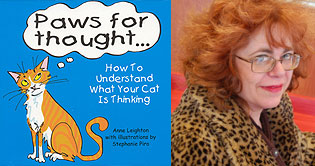
hey really shouldn’t call it the waiting game. Because, you know, it’s only a game if you’re a masochist. Or an editor. The truth is, though, that waiting is a part of life (make that a part of every day) for writers. Whether you’re a freelance writer waiting for the go-ahead on your first-ever magazine article or a veteran author dropping random hints on your blog in anticipation of your next book deal, waiting spares no writer—no gender, color, or race discrimination for this miserable foe.
So how can writers make this cycle of wait, waiting, waited go by just a little bit quicker? Here are a few ideas.
1. Start something new.
When author Debbie A. McClure’s first novel was written, edited, and out on submission to agents, she realized that she’d underestimated just how long the process might take. As she spent weeks and months waiting for answers, she found herself getting increasingly frustrated. “[Waiting for responses] can be one of the most difficult things to deal with, especially if you’re not a patient person by nature,” she says. As the rejections started trickling in, she began working on her second book, a paranormal romance. “I wanted to have fun with this writing thing, so I wrote every day, first thing in the morning before I started work,” she says. She wrote a second book. Then she wrote a third book. This one finally sold.
It’s not always going to be in your control; but if you want to be a professional writer, you need to have work to show. That means more than one book. If an agent or editor passes on one, you’ll have a second ready to go. So while your agent and editor are battling it out over the clauses of your contract, make yourself a cup of tea and head to your office to write some more. By the time they’ve settled the contract and gotten back to you, you’ll have a good reason to send them off battling again.

“While I may not have the ability to dive right into the writing process, I usually find it very easy to plan out the story.”
(Photo: John Ashley)
2. Think about your next step.
If you’re pacing around your office or checking e-mail every 4.3 seconds, you’re probably unlikely to be in the right headspace to start a new project. “Having finished a book and entered the pre-publication waiting game, starting a whole new project is the last thing I want to do,” says seventeen-year-old high school student John Ashley, who has written and published two books in his Xavier series. “I simply lack the drive, and trying to write without drive leads to nothing but dribble.”
In order to make use of his time, he says he’s started doing two things: One, he thoroughly plans out the next book he plans to write. “While I may not have the ability to dive right into the writing process, I usually find it very easy to plan out the story; so that by the time I am ready to start writing, I know exactly in which direction I’m headed.” Two, he uses that time to build his platform in the form of booking speaking engagements, getting active on social media, or writing articles for other websites and publications. “When the project I’m waiting on finally releases, you can bet these efforts will equal sales,” he says.
3. Keep exercising those writing muscles.
If you’ve just finished typing “The End” on a 100,000-word manuscript, you may not quite be in the mood to begin again just yet. But it’s important to keep those writing muscles flexed, or who knows how much trouble you’re going to be in when it’s time to get into a daily routine once more? Instead of starting a new book, many authors take a break by working on smaller projects—essays, articles for newspapers, or even promotional blog posts.
Freelance writer Leigh Matthews says it’s helpful to have lots of ideas that are not time sensitive that you can get to when other deadline-oriented work is going slow or book projects have come to an end. “That way you can write these whenever you get the chance rather than having to abandon them because they’re outdated,” she says. “For me, this means things like having a stack of handwritten recipes that need typing up, and blogging.”

“Spending time writing what you absolutely love is one way to remain productive.”
(Photo: C.L. Talmadge)
4. Start (or finish) a personal project.
That novel you always wanted to write? Why not start it while your agent puts your nonfiction book on submission? Those grants and awards that you said you’d apply to six months ago, but never got around to doing because they’re dreams that don’t exactly pay the bills? Hey, complaining on Facebook ain’t paying the bills either, so you might as well do something productive. Or you could get out an unfinished project that you are still interested in and take the next step on that.
“Projects are like tides,” says Anne Leighton, a music publicist and working poet. “You want to have them at different stages of completion. When you’re stewing a new project, you’re really collecting ideas for the other ones on both content and how it should be developed.”
After many tries over several decades to finish a novel, finally in July 1998, C.L. Talmadge woke up on a Saturday morning knowing that this time she could write it. “I had steady freelance work at the time, so I woke up early to write and remained after hours to write more on the weekends,” she says. In a little over a year, C. L. had finished the first drafts of the first two books in the series. “Spending time writing what you absolutely love is one way to remain productive,” she says. “Writing what a writer loves does not feel like work, so it’s not as taxing or energy consuming. It can be energizing instead.”
5. Celebrate! Reward Yourself!
“Once a writer sends her words out for critique or possible acquisition, she cannot do anything to make things move faster,” says C. L., who is the author of the Green Stone of Healing series. “So the best approach to keep her sanity intact is to let that particular writing project go and focus on the next one.”
First, however, she insists that some sort of celebration is a must. “Take a walk or a movie break or even a holiday. Get an ice cream treat (my downfall),” she says. “Writers have the right and the need to reward themselves for a job accomplished.”
So go! Celebrate! Take a break! Lock yourself out of your office for a day, and go on a date with your spouse, to the movies with your kids, or the park with your dog. The more you allow yourself to disconnect from the stresses of work, the easier it will be for you to go back recharged, refreshed, and ready to face whatever news is coming your way.

“Cozy as the picture is of writers sequestered in little corners and just writing their little hearts out, it’s no longer a valid scenario.”
(Photo: Debbie McClure)
6. Start marketing and building your platform.
Get active on forums that you’ve neglected while you’ve been in the thick of writing; contact old colleagues and writing friends; post comments on other people’s blogs; update your Twitter, LinkedIn, and Facebook profiles; and while you’re at it, post something on your blog. No matter what kind of writer you are, building a platform is somewhere between the first and the tenth item on your to-do list, so you might as well use this time to make some progress in that department.
“Cozy as the picture is of writers sequestered in little corners and just writing their little hearts out, it’s no longer a valid scenario,” says Debbie, who wrote In the Spirit of Love, a paranormal romance. “The world is a big place, technology is changing every day, and writers need to take control of their careers.” One way to do this, she says, is to focus on the marketing and promotion, since you’ll be expected to do this anyway. “Even the big houses require this of their top sellers now. Social media is huge; so are blogs, websites, public appearances, etc.” While you’re waiting, and not writing, start actively networking and marketing instead.
7. Do something writing-related that’s not actual writing.
Most writers are experts at doing things that are writing-related but not actual writing, especially when they’re on deadline: taking a class, reading a book, just a little bit more research, posting on message boards—one more game of Tetris.
You know of what I speak.
When you’re doing a lot of waiting and not a lot of writing, these are perfect activities with which to occupy your time. “Waiting time is a great opportunity to learn new things that put you in a better position for negotiation,” says Leigh. “If you aren’t sure about a new piece of software or a social media platform, then spend some time getting familiar with it. The more skills you have, the less you’ll be waiting for others to do those little, but essential, things.”

“Waiting time is a great opportunity to learn new things that put you in a better position for negotiation.”
(Photo: Leigh Matthews)
8. Go fishing or running or walking.
Do something completely unrelated to writing. The point is to get out of the house and out of your head. (Step away from that iPhone, or somebody will get hurt.) It’s a really good idea to take time away from work, so that you give your brain some free time and space. A 2011 study in the journal Cognition showed that even brief diversions—five minutes or so—can improve your ability to focus. In fact, just stepping away from work can increase brain productivity and help you come up with new ideas and angles.
When the market crashed in 2008, several of the magazines Nikki Moustaki wrote for folded, and all of her book projects screeched to a halt. “In times like those, it’s probably best to keep writing; but I had a feeling I’d have a lot of extra time on my hands, and there are only so many hours in a day where it’s healthy to sit behind a computer and stare at the screen,” she says. “Writers can’t write twelve hours a day and not expect to develop chiropractic and vision problems. So, I went to the music store and bought a guitar, and used YouTube videos to teach me how to play basic chords and eventually, basic songs. I had the guitar in my hands three hours a day, every day, for three years. I can now play hundreds of songs. Playing music keeps you in the moment; and in the moment, I can’t worry about where my next writing assignment is coming from. It’s a productive escape.
Plus, now I can entertain people around a campfire at writing conferences. ‘Kumbaya,’ anyone?”
Don’t worry if you’re tone deaf; there are other things you can do. “Plant a garden. Take stand-up paddle boarding lessons. Adopt a puppy. Volunteer at a soup kitchen. Do things other than write so that you have something to write about,” says Nikki, who has authored forty-five books and whose memoir The Bird Market of Paris will be released in January 2014. “There have to be periods of absorption, times when you just live your life and observe everything and percolate.”

“There have to be periods of absorption, times when you just live your life and observe everything and percolate.”
(Photo: Nikki Moustaki)
9. Take back the control.
A lot of our professional lives can feel like they’re out of our control. We have little say, after all, in when editors will respond to us, whether they’ll buy our work, or when they’ll choose to publish it. Many writers feel, however, that although there are certain elements that are out of control, we can still choose to be in charge of our careers. “Use your creativity,” advises Anne. “Is there a band who needs help with their lyrics or marketing skills? That’s how I started working with singer Jann Klose. What can you do with local businesses, charities, educational institutions that further your writing goals? Can you workshop a play with a local arts organization? Have a bank sponsor a book on fiscal responsibility for the individual? Maybe there’s a major food manufacturer in your community that might sponsor a recipe book. Make use of what’s out there.”
One of the great things, she says, is that technology has given us the ability to control our product. “While it’d be great if someone gave me a deal to produce one of my screenplays or someone gave me a book assignment tomorrow, I can create the writing of my ideas whenever I want; and in some cases, I can create a whole new piece of media for both simple and complex ideas.”

“Make use of what’s out there.”
(Photo: Anne Leighton)
10. Finally, let go.
It’s a lot easier for me to type this—just watch—than it is for you to do this, but—Let. It. Go. No amount of pacing, drinking coffee, or pestering your spouse is going to do make that answer arrive faster (trust me, I’ve tried); so just forget about it and get on with other things. When the good news finally does arrive, you will have kept your sanity and will be ready to tackle the hard work ahead.
***

Mridu Khullar Relph is an award-winning journalist who has written for The New York Times, Time, The International Herald Tribune, Ms., and The Christian Science Monitor, among others. You can get a copy of her free e-book “21 Query Letters That Sold,” with queries that sold to The New York Times, Time, Ms., Girls’ Life, Writer’s Digest, and The Writer on her blog.
-----
You may also like:
20 Questions Answered by Mridu Khullar Relph